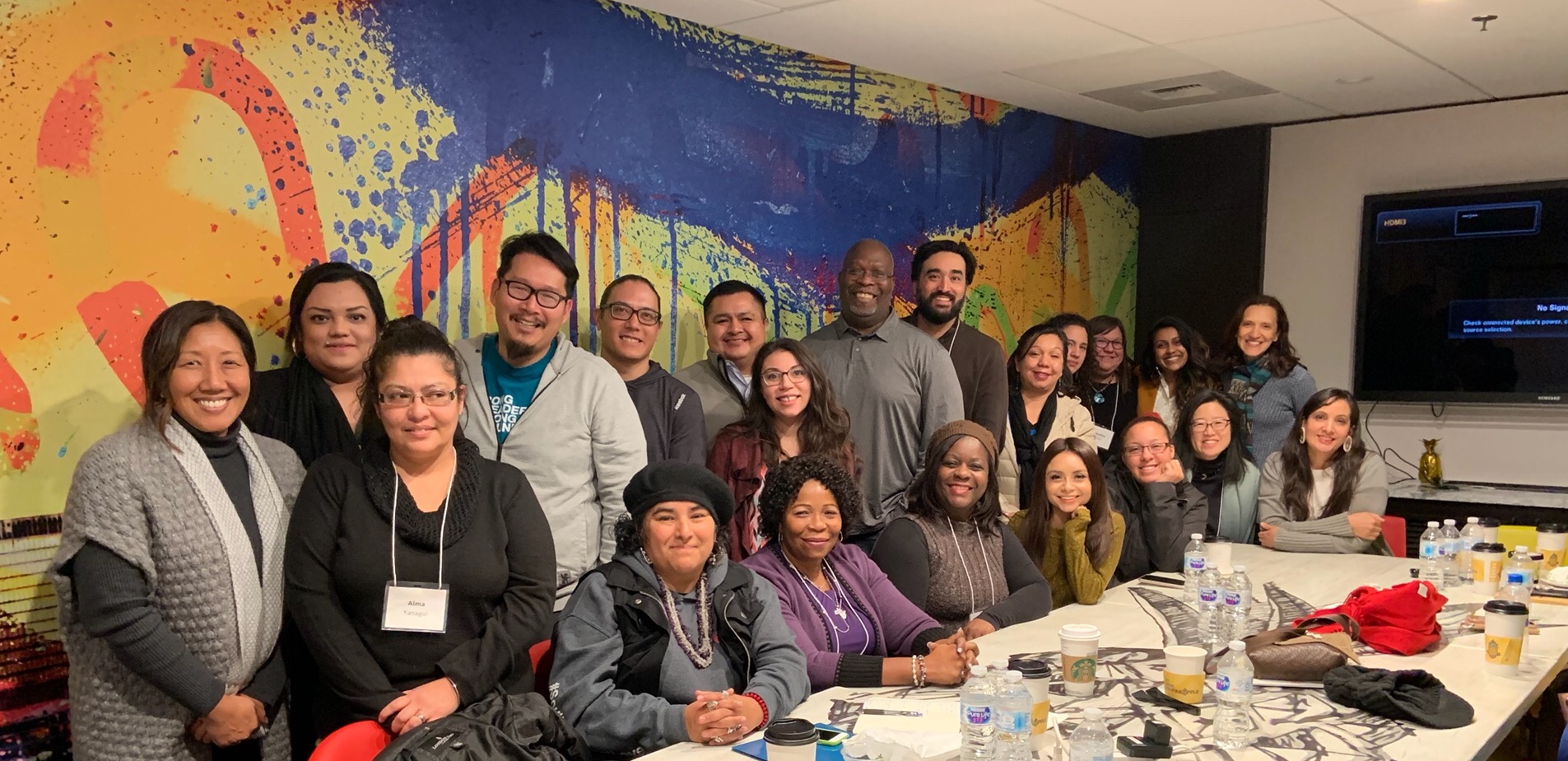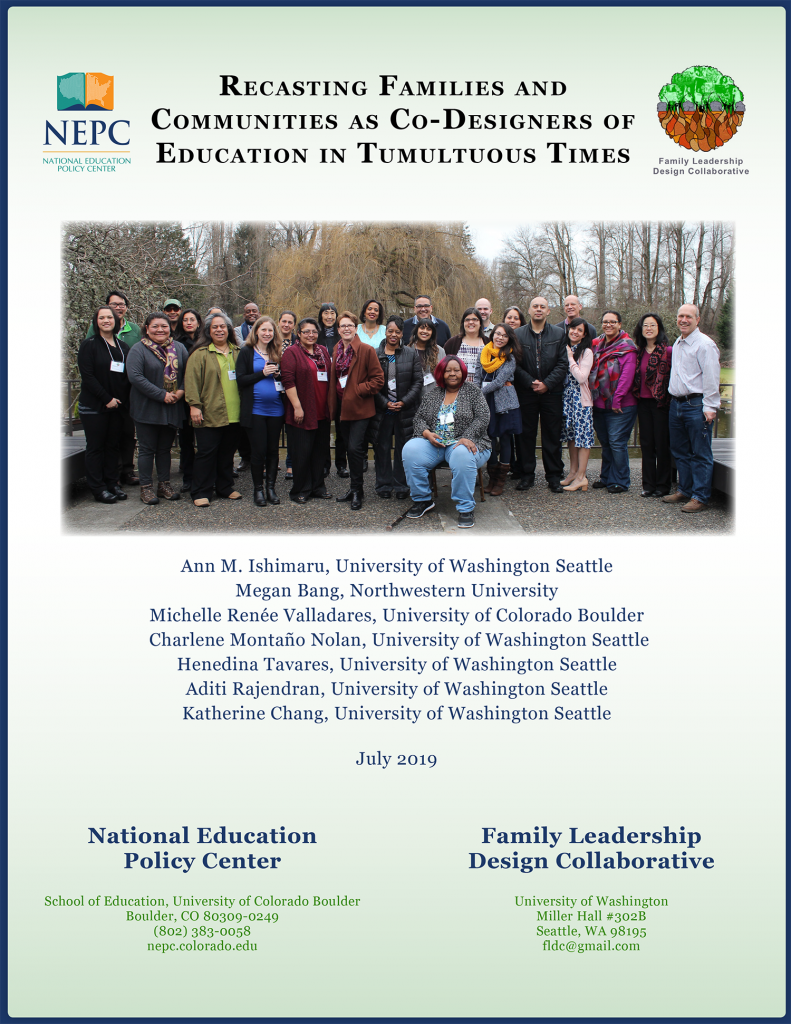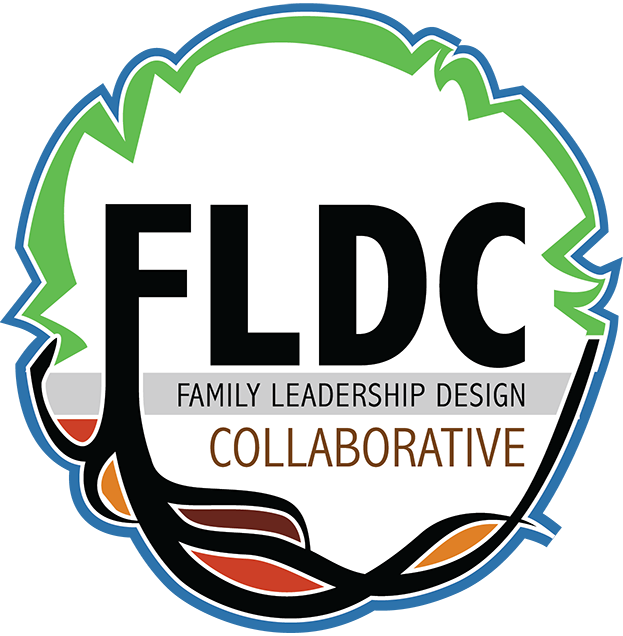In a national moment of political tumult and violence directed at people of color, immigrants and other marginalized groups, our education systems need new strategies for meaningfully engaging families and communities in ensuring equitable learning for our youth. Not only do families and communities bring historical and lived knowledge in how to persist through these challenges, they also can bring critical expertise in how to advance educational justice and community wellbeing.
Amid these difficult times or perhaps because of them, we have found evidence of justice-based approaches to family engagement that position parents and families, particularly from nondominant communities, as fellow leaders in transforming schools and educational systems to better serve all children, families and communities.
This memo is shares what we have learned with public school leaders and others working to engage families and communities in education. Based on findings from our collaborative work, we conclude with a set of ten policy recommendations that seek systemic transformation.




